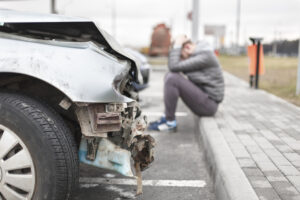
A car accident claim can be settled without a lawyer, but we don’t recommend it. Dealing with the aftermath of a car accident involves more than just repairing your vehicle; you may also need to address compensation for medical bills, lost wages, and other unforeseen expenses. Without legal representation, you risk undervaluing your claim, and it’s common for insurance companies to offer less than what your case is truly worth in these situations.
However, we understand that some individuals are determined to settle their car accident claims independently. If you’re committed to proceeding without a lawyer, it’s critical to arm yourself with the right information and approach. In this blog, we’ll outline what you need to know if you decide to proceed.
Gather Evidence For Your Michigan Car Accident Claim
To successfully settle your car accident claim on your own, you need a solid foundation of evidence. This evidence will support your claim by demonstrating the extent of your injuries, the damages to your vehicle, and who was at fault. Here’s a breakdown of the key types of evidence you should gather.
- Police Report: Obtaining the police report is a critical first step. This document provides an official account of the accident, detailing the events and often indicating fault. A police report can serve as a strong piece of evidence to support your claim that the other driver was responsible for the accident.
- Medical Records: Your medical records serve as proof that you sustained injuries as a result of the crash and required medical attention. If your injuries necessitate ongoing treatment, your medical records should reflect this need. These records are key to demonstrating the physical impact of the accident on your life.
- Medical Bills: Collect all bills related to your medical treatment following the accident. These bills may be covered by your auto or health insurance, or the at-fault driver’s insurance, depending on the situation. They show the financial impact of the accident, reinforcing the need for adequate compensation.
- Injury and Crash Photos: Photographs of your injuries can be compelling evidence that adds significant value to your case. You should also take photos of the crash scene and all vehicles involved. Extensive damage often leads to higher settlement offers, as it’s more challenging for insurance companies to dispute the severity of your injuries.
- Witness Statements: If there were any witnesses to the accident, it’s important to get their statements in writing. Ask them to detail what they saw or heard, and to include their signature and the date on the document. You should also collect their contact information for any necessary follow-up.
Gathering and organizing this evidence may seem time-consuming, but it’s essential for building a strong case. This documentation will be the backbone of your claim, helping you to negotiate more effectively with insurance companies and work towards a fair settlement for your car accident claim.
Determine The Amount Of Money You Want To Settle For
Once you have gathered all the necessary evidence, the next step is to determine the amount of money you wish to settle for. This stage requires careful consideration, as setting a realistic, yet adequate, target for settlement is key to obtaining fair compensation for your losses. Factors to consider include:
- Severity of Your Injuries: More severe injuries generally warrant higher compensation due to the increased medical care and potential long-term effects on your health.
- Duration of Your Injuries: Whether your injuries are temporary or have permanent implications can influence the settlement amount.
- Impact on Your Lifestyle: Consider how your injuries have affected your daily life, including your ability to enjoy hobbies, perform household tasks, and maintain relationships.
- Wage Loss and Medical Bills: Calculate both your current lost wages and medical expenses, as well as any future financial losses you may incur.
- The At-Fault Driver’s Conduct: The nature of the at-fault driver’s behavior (e.g., a simple mistake vs. outright recklessness) can affect the settlement.
- Evidence of Causation: Having solid evidence that the crash directly caused your injuries strengthens your compensation claim.
- Mental Effects of the Crash: Don’t overlook the psychological impact of the accident, such as anxiety, depression, or PTSD.
- Your Character: The perception of the claimant can influence negotiations. Being seen as likable and credible can be advantageous.
- Amount of Insurance: The insurance coverage limits of the at-fault party can also play a role in determining how much you can realistically expect to receive.
Setting Your Demand
Once you’ve filed your claim, the insurance adjuster will evaluate the damage to your vehicle, any medical expenses incurred, and potentially other losses to determine what they consider a fair payment. However, it’s important to remember that the initial offer from an insurance company often falls short of covering the full extent of your damages and losses.
Your next step is to prepare a demand letter. This document is your opportunity to present a comprehensive account of the accident, detailing the extent of your injuries, the impact on your life, and the associated costs. It should include:
- A clear explanation of the incident and why the other driver is at fault.
- A detailed list of all damages, including but not limited to medical expenses, property damage, lost wages, and any other financial impacts you’ve endured as a result of the accident.
- Actual numbers and estimates to quantify your losses and justify the amount you’re demanding.
- Any relevant documentation to support your claim, such as medical records, repair bills, and proof of lost income.
The demand letter should not only justify why the initial settlement offer is inadequate but also make a clear case for the compensation you believe you deserve. While it’s uncommon for a demand letter alone to secure the desired increase in settlement amount, it serves as a critical initial step in negotiations, signaling your commitment to securing a fair deal.
Negotiation and Settlement
Upon receiving your demand letter, the insurance company will likely present a counteroffer. This is where the negotiation truly begins. You have the option to accept this offer if it meets your needs. However, if the offer still does not reflect the full value of your claim, further negotiation is necessary.
It’s essential to approach these negotiations with patience and persistence, armed with as much evidence and documentation as possible to support your case. If you and the insurance company remain far apart in your settlement figures and negotiations stall, you may need to consider legal action to achieve the compensation you’re entitled to.
Going to Court
Settling your claim outside of court is often the most advantageous path. Negotiating a settlement with the other driver’s insurance company or attorney can save you both time and money. It also eliminates the uncertainty of a court verdict and the need for hiring a personal injury attorney to represent you in court. An out-of-court settlement allows for more control over the outcome and can provide a quicker resolution to your claim, but sometimes it isn’t possible.
If you decide that going to court is the best option for your situation, take the time to research similar cases and their outcomes. Understanding the types of settlements awarded in cases similar to yours can give you a better idea of what to expect and how to prepare. This information can be invaluable in setting realistic expectations for your own case.
Once you’ve done your research, you should gather all necessary documentation, such as medical records, repair bills, and evidence of lost wages, to support your claim. Familiarize yourself with the legal procedures and consider consulting with a lawyer for a case review, even if you plan to represent yourself.
After you present your case, the judge or jury will determine the settlement amount based on the evidence and arguments provided. If you’ve presented your case effectively, the judge or jury may award you a settlement larger than what the insurance company initially offered. However, if the judge or jury finds the evidence insufficient, they may rule in favor of the insurance company, and you may not receive anything.
Taking a car accident claim to court is a complicated process. It requires a thorough understanding of applicable laws, a clear assessment of your case’s strengths and weaknesses, and readiness for possible financial and emotional investments. Always consider seeking legal advice to ensure you’re making the best decision for your specific situation.
Would You Like to Speak to a Michigan Car Accident Attorney?
Handling a car accident claim on your own can be extremely complicated. From gathering evidence and determining the right amount for your claim, to crafting a compelling demand letter and engaging in negotiations, each step requires careful attention and diligence. While some may choose to settle their claims without legal assistance, it’s important to recognize the risks and challenges involved, including the possibility of undervaluing your claim or facing tough negotiations with insurance companies.
Settling a car accident claim is not just about recovering financial losses; it’s about securing the resources you need for your recovery and future well-being. If you need help with your claim or simply wish to discuss your options, we encourage you to contact Conybeare Injury and Accident Lawyers. To schedule your free initial consultation, call 269-769-BEAR or fill out this contact form. Remember: if it’s not fair, call the Bear!

Barry Conybeare focuses on all aspects of personal injury law, including car accidents, medical malpractice, product liability, insurance claims, and most other injury cases.
- Best Lawyers in America®, Lawyer of the Year 2024, 2021, 2017, and 2013, Plaintiffs Personal Injury Litigation, Kalamazoo Region (Southwest Michigan)
- Best Lawyers in America® 2008-2024, Plaintiffs Personal Injury Litigation, Kalamazoo Region (Southwest Michigan)
- Michigan Super Lawyers® 2009-2023
